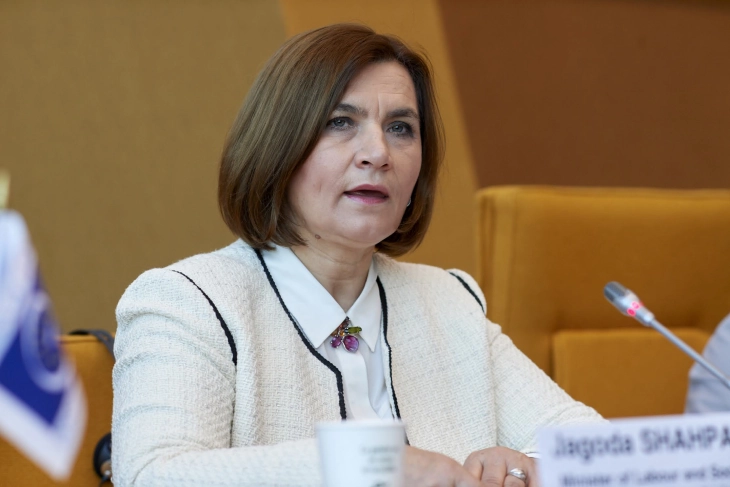One society for all to be achieved through policies against gender stereotypes, Minister Shahpaska tells Roma women conference

Skopje, 26 November 2021 (MIA) – Minister of Labor and Social Policy Jagoda Shahpaska took part in the 8th International Roma Women’s Conference, organized by the Council of Europe and held in Strasbourg. Participants discussed during the event, the impact of COVID-19 on the Roma population in regard to health protection, human rights, discrimination, racism, employment and gender equality.
Representatives of the Council of Europe member states and NGOs underlined the need for systematic and organized approach that entails adjusting measures to Roma people’s needs, especially amid the COVID-19 pandemic.
Shahpaska, the Labor Ministry said in a press release on Friday, stressed at the conference that the government is focused on preventing and combatting gender-based stereotypes, sexism and violence, as well as providing equal approach to justice, balanced participation in decision-making, as well as gender-responsible budgets for institutions at central and local level.
“North Macedonia has set an example in the region and beyond as a tolerant multiethnic and multi-religious country that respects diversity. We achieved this through policies that ensure equal level of inclusion and integration of all ethnic communities, as part of the government’s ‘one society for all’ concept. It’s our duty to be a society that integrates, not segregates, that unites, not divides, that includes, not excludes,” Shahpaska said.
She briefed conference participants on the efforts the country is putting in promoting the status of Roma women, in line with the strategy and national action plans for the Roma population in North Macedonia, as well as the separate action plan for Roma women.
“The country is taking measures and activities aimed at including Roma children in the pre-school and education system, as well as providing them and their parents with support via the day centers. The sexual and reproductive health of Roma women is also high on our agenda,” Shahpaska noted.
In regard to the situation of the Roma population amid the COVID-19 pandemic, the Minister said that the 2019 social reform ensured a 300% increase of guaranteed minimum assistance, as well as other benefits, which have allowed vulnerable categories of citizens overcome the effects of the pandemic more easily. She added that additional 8,500 households have been provided with facilitated access to the social protection system. Moreover, a total of 36,200 households receive guaranteed minimum assistance, of which 20% are Roma households.
Minister Shahspaska met on the sidelines of the conference with Council of Europe Secretary General Marija Pejčinović Burić, the head of the Democracy Directorate Snežana Samardžić-Marković and Venice Commission Secretary Simona Granata-Menghini.







